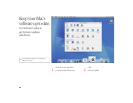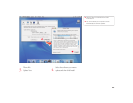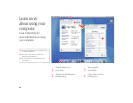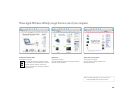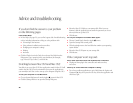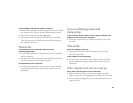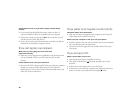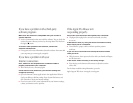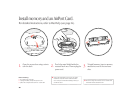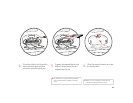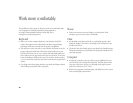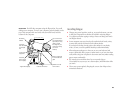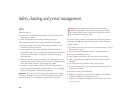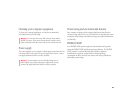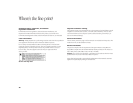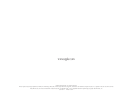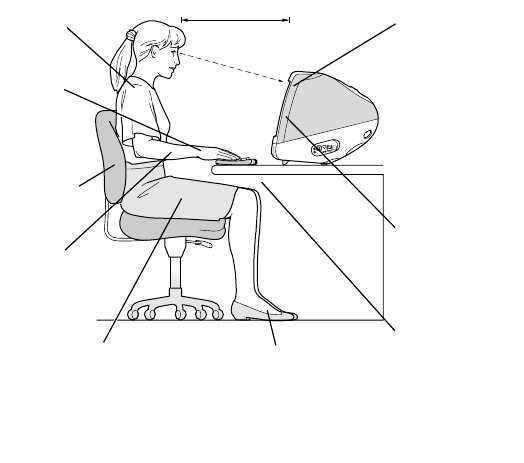
33
Important Don’t lift the computer using the flip-out foot. You could
damage your computer. To move your computer, grab the handle on the
top of the computer with one hand; with your other hand, hold the
bottom of the computer.
Avoiding fatigue
m Change your seated position, stand up, or stretch whenever you start
to feel tired. Frequent short breaks are helpful in reducing fatigue.
m Use a light touch when typing or using a mouse and keep your hands
and fingers relaxed.
m Some computer users may develop discomfort in their hands, wrists,
or arms after periods of intensive work without breaks.
If you begin to develop chronic pain or discomfort in your hands,
wrists, or arms, consult a qualified health specialist immediately.
m Allow adequate workspace so that you can use your keyboard and
mouse comfortably. Place papers or other items so you can view them
easily while using your computer. A document stand may make reading
papers more comfortable.
m Eye muscles must work harder to focus on nearby objects.
Occasionally focus your eyes on a distant object, and blink often while
you work.
m Clean your screen regularly. Keeping the screen clean helps reduce
unwanted reflections.
45–70 cm (18–28 in.)
Thighs tilted slightly
Shoulders
relaxed
Screen positioned
to avoid reflected
glare
Forearms
and hands
in a straight
line
Forearms
level or tilted
down slightly
Lower back
supported
Feet flat on the floor
Top of the screen
at or slightly below
eye level (You may
need to adjust
the height of your
monitor by raising
your work
surface.)
Clearance under
work surface



